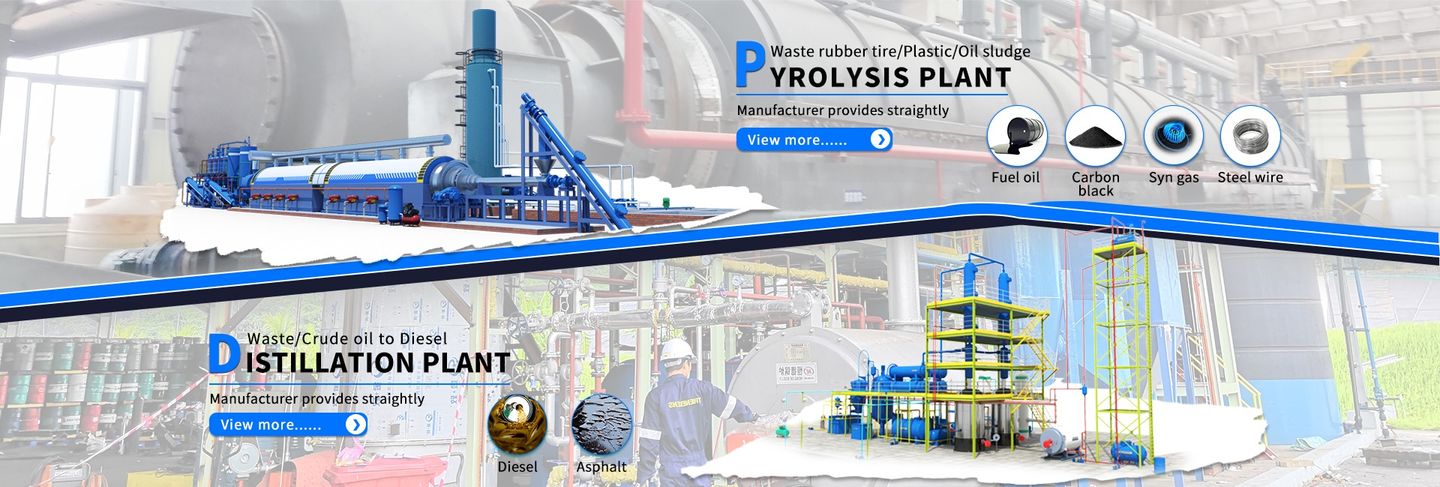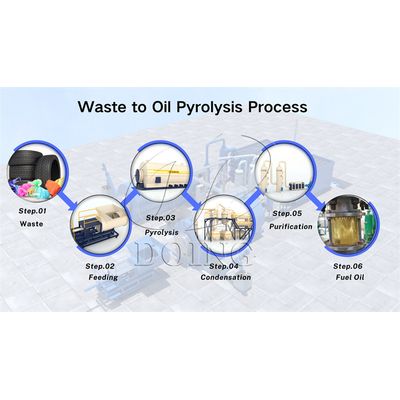

- Home
- Companies
- Henan Doing Mechanical Equipment Co., ...
- News
- What Kind of Oil Can We Get from the ...

What Kind of Oil Can We Get from the Pyrolysis Process?
As a leading manufacturer of pyrolysis plants, DOING Company is dedicated to providing innovative and efficient solutions for waste-to-energy conversion. Our pyrolysis technology not only helps in managing waste but also produces valuable oil products that can be utilized in various industries.
Understanding the Pyrolysis Process
Pyrolysis is a thermal decomposition process that occurs in the absence of oxygen. It involves heating organic materials to high temperatures, typically between 300°C and 600°C, which breaks down the complex molecular structures into simpler compounds. The process yields a mixture of solid, liquid, and gaseous products, with the liquid fraction being the pyrolysis oil.
Types of Oil Obtained from Pyrolysis
The type of oil obtained from the pyrolysis process largely depends on the feedstock used. Here are some common types of pyrolysis oil:
Plastic Pyrolysis Oil
When waste plastics such as PE, PP, and PS are subjected to pyrolysis, they break down into lighter hydrocarbons. The resulting oil is a mixture of light and heavy oils, which can be further refined into diesel and other fuel products. This oil is highly sought after due to its high calorific value and low sulfur content, making it suitable for use in industrial heating and as a substitute for traditional fossil fuels.
Tire Pyrolysis Oil
Waste tires, composed of natural and synthetic rubber, undergo pyrolysis to produce tire pyrolysis oil. This oil can be upgraded into fuels like diesel and heavy oil, which are used in generators and industrial applications. The oil from tire pyrolysis is known for its stability and compatibility, offering a cleaner alternative to conventional fuels.
Oil Sludge Pyrolysis Oil
Oil sludge, a byproduct of oil extraction and processing, contains rich petroleum hydrocarbons. Pyrolysis of oil sludge yields oil that can be used for various industrial applications. This process also helps in reducing environmental pollution by solidifying harmful substances like heavy metals in the residue.
Applications and Benefits of Pyrolysis Oil
Pyrolysis oil offers numerous benefits across different sectors:
Energy Production: Pyrolysis oil can be used in boilers and furnaces for heat production, providing a cleaner energy alternative.
Biofuel Production: It serves as a feedstock for producing biofuels, which are renewable and environmentally friendly.
Industrial Uses: Pyrolysis oil is utilized in the metallurgy industry as a binder for biocoke production.
Environmental Benefits: By converting waste materials into usable energy, pyrolysis reduces landfill waste and greenhouse gas emissions.
DOING Company's Commitment to Innovation
At DOING Company, we continuously strive to enhance our pyrolysis technology to maximize oil yield and quality. Our advanced pyrolysis plants are designed to handle various feedstocks efficiently, ensuring optimal performance and minimal environmental impact.
In conclusion, the pyrolysis process is a versatile and sustainable method for producing valuable oil products from waste materials. Whether it's plastic, tire or oil sludge pyrolysis, the resulting oils play a crucial role in meeting the growing demand for clean and renewable energy solutions.




